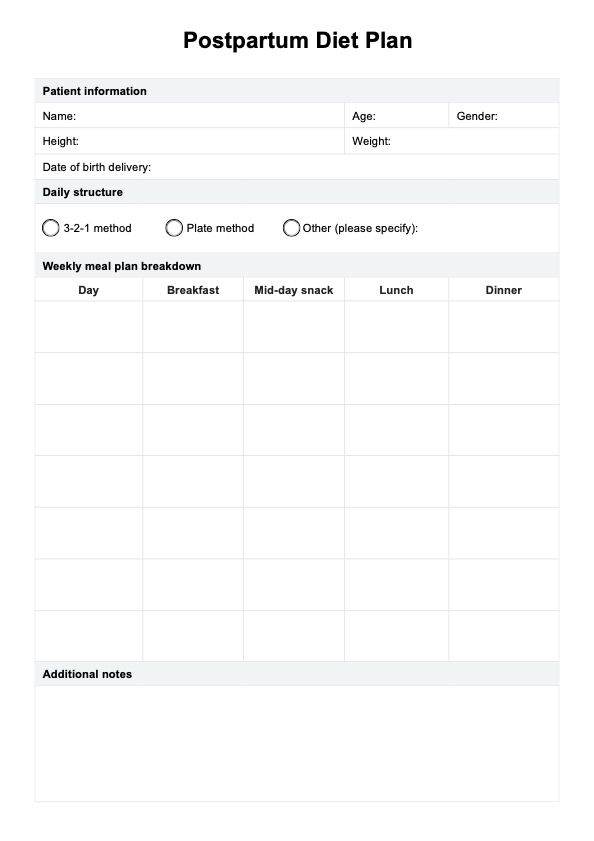New mothers should follow a Postpartum Diet Plan to ensure they receive the essential nutrients needed for recovery and to support their breastfeeding journey. A well-structured diet can also help manage mood swings and fatigue, promoting overall well-being during this transformative period.












